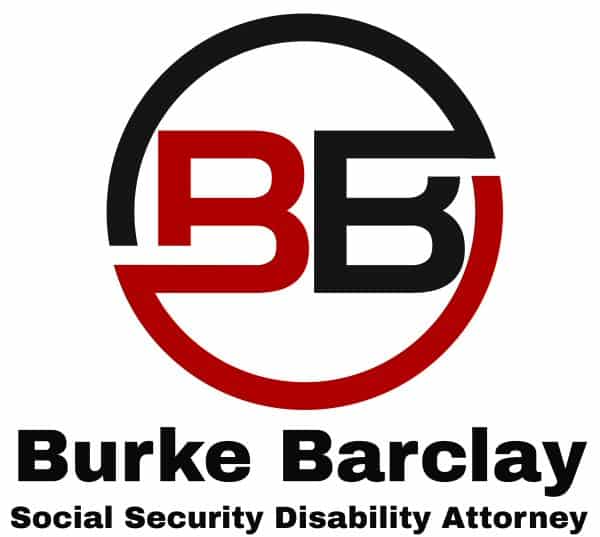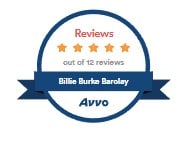Did The Vocational Expert Testimony Cause You To Be Denied?
For the most part, the Vocational Expert (VE) at your disability hearing understands what jobs would be available in the national economy despite your physical limitations. However, sometimes if you look closely enough at what jobs the VE states you are capable of performing or the Administrative Law Judge (ALJ) concludes you can perform despite your limitations, may not be all that accurate.
If you have been denied at your disability hearing, look closely at what jobs the ALJ has concluded in his or her decision that he or she believes you can still perform, even with your present mental or physical limitations.
Don’t let the length of the ALJ’s decision intimidate you. It is more simple than you think.
First, look at what jobs were listed the ALJ believes you can perform. They are usually listed around the fourth or fifth page of you decision. Sometimes, the judge will set them in a box with their corresponding “Dictionary of Occupational Titles” number (D.O.T. #).
Next, look up “Dictionary of Occupational Titles” on the internet (Google). There, you can insert the numbers next to the job listings in your decision. Once you have the job the ALJ stated you were capable of performing, be sure and read the description of the job a couple of times. Look back over your medical records and ask yourself, “Am I capable of performing this job with the medical conditions I have?” -Be honest with yourself and try to be impartial. After receiving a denial, it is easy to become emotional and not to objectively review the ALJ’s decision.
Objectivity at this point in your fight for Social Security disability benefits is absolutely critical.
Each job listed within your hearing decision will have a detailed description of what the job would require in terms of strength and mental requirements. While the numbers at the bottom of the job may seem intimidating, don’t let it be. The listing at the bottom for strength requirements will almost always be easily identifiable.
Now, understand that all jobs have some sort of strength requirement. They will either be sedentary, light, medium, heavy or very heavy. You can also look up these strength requirements on the internet (again, Google) to understand what it takes to fulfill these descriptions.
I’ll give you a good example: If one of the jobs listed states that it is a sedentary job, then it has its own specific strength requirements. First, you must be able to sit 6 out of 8 hours per day with normal breaks in between. Next, you will usually lift no more than 10 pounds during the day and frequently lift less than 10 pounds (things like file folders, etc.).
Once you have an understanding of what the job would require in regards to strength requirements, then go back and look at what limitations you have. For example, could you sit 6 out of 8 hours per day and only take normal breaks in between? Can you lift a gallon of milk (around 10 pounds)? If your medical records show that you cannot, you may have an argument at the Appeals Council level in which the ALJ made a mistake.
Now, understand whether this is a harmless mistake or one that goes to the very heart of your denial. You really must have a substantial amount of evidence that shows you would not, for example, be able to work at one of the sedentary jobs listed by the ALJ in his or her denial. If your medical evidence clearly shows limitations to do the kind of work listed in your denial letter, then you may want to seriously think about filing an appeal to have your case reheard by the ALJ in a new hearing.
Now, there is also something else you should really look at in your denial letter. Each job also must list the reasoning, reading, and mathematical requirements for each job. If you have mental limitations that keep you from working, this is where you should really focus your attention. Thus, while you may be able to sit at a job for 6 out of 8 hours per day, you may not be mentally able to do the job listed.
This is what is called the “Specific Vocational Preparation” (SVP) rating for each job. Look for these numbers at the bottom of the job listed within the D.O.T. Here is a good example:
If the job listed by the ALJ or the VE is listed at an SVP of 2, then examine what it means to have to fulfill this requirement. Almost all of the time, any job found to be available by the VE or the ALJ will require an SVP of 2. But, what does this exactly mean?
First, it means that you must be able to carry out detailed instructions from a supervisor. Can you do this? Or, are you only able to carry out very simple instructions? If you can only follow simple and not detailed instructions, then you cannot perform the job listed with an SVP rating of 2.
Next, look at the mathematical requirement. One of the requirements of a job listed at this level is that you must be able to compute ratio, rate and percentages. Can you do so? Are you capable of interpreting bar graphs? These are the kind of things that would be required at this level of work. If you cannot, you may have an argument that the job listed would not be able to be performed in your case.
Can you read at a rate of 190-215 words per minute? Can you write compound sentences, use proper punctuation, and properly use adjectives and adverbs? Again, if you cannot, then the type of job listed in your denial letter would not be proper and you may have an argument for a reversal and a new hearing.
As stated above, even if the ALJ or the VE makes a mistake in determining what you are capable of performing, your case may or may not be overturned and a new hearing ordered. Not every mistake an ALJ makes in a denial is going to be a reason for a new hearing. Look back at your medical records and apply them to your decision and look at the reasons why you were denied. If you think you have a case, then it does not hurt to ask for an appeal with the Appeals Council and wait for their decision.
These are the kinds of errors in which you can base an argument that you should have not been denied disability benefits. If your medical records show “substantial evidence” that you would not be able to perform at one or more of the jobs listed in your denial, you may have firm ground upon which to launch your appeal.
You Need an Experienced Social Security Disability Lawyer
We represent claimants fighting for their Social Security disability benefits throughout Texas and California. Contact the Law Office of Burke Barclay for a highly experienced Social Security Disability Lawyer in Dallas, Texas
"Experienced Social Security Disability Lawyer representing clients throughout the United States who either need to initially file for their Social Security disability benefits or have been denied at one of the various stages throughout the process to give them the best chances of success."
Business Address
The Law Office of Burke Barclay
3838 Oak Lawn Ave.
Suite 1000
Dallas, TX 75219
Business Hours
Monday - Friday
8:00 AM - 5:00 PM





